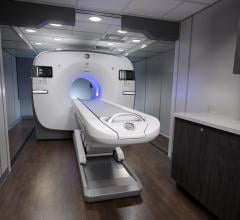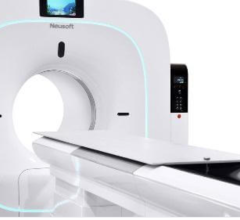
The pursuit of an imaging tool to visualize the protein alpha-synuclein, the hallmark pathology of Parkinson's disease (PD), in the brain is the subject of a paper published in theJournal of Parkinson's Disease by three researchers from The Michael J. Fox Foundation for Parkinson's Research (MJFF). The Foundation has assembled and leads a consortium to develop a radioactive PET tracer that could lead to better therapies and quality of life for Parkinson's patients.
"The time frame for developing a PET tracer can be a long one, on the order of several years, and requires some luck along the way. MJFF seeks to accelerate this process through a concerted effort to combine resources and expertise from several different groups," wrote the paper's authors.
Also today MJFF is hosting a workshop of industry and academic leaders investigating alpha-synuclein and other protein tracers to encourage support and collaboration around this goal.
"The ability to measure biomarkers of Parkinson's disease—including alpha-synuclein in the brain—would radically transform treatments for PD patients by allowing researchers to confirm diagnosis, stratify volunteers for clinical trials and measure drug efficacy faster," said Jamie Eberling, Ph.D., senior associate director of MJFF research programs and first author of the paper. "Availability of an alpha-synuclein tracer would be a huge leap forward for drug development."
Parkinson's disease is marked by clumps of alpha-synuclein, called Lewy bodies, in brain and body cells, which can currently only be measured at autopsy or inferred from protein levels in blood or cerebrospinal fluid. Scientists are hoping to develop a drug with a radioactive tag that can be read by positron emission tomography (PET) scans and that can bind to alpha-synuclein. With this tool, they could visualize the distribution of alpha-synuclein in the brain. Such tracking of these aggregates would help diagnose and track disease progression and monitor therapies targeted at reducing alpha-synuclein levels. As drugs targeting Lewy bodies move through development, researchers could test whether they change levels of alpha-synuclein rather than rely on a change in clinical symptoms, as they do now.
Development of a tracer of the protein beta-amyloid transformed Alzheimer's disease research, leading to insights on how that pathology leads to cognitive decline. PD researchers hope the ability to image alpha-synuclein could allow similar breakthroughs in not only Parkinson's disease, but also related parkinsonisms such as Lewy body dementia, multiple system atrophy and progressive supranuclear palsy.
In 2011 MJFF assembled a consortium with a contract research organization and two academic groups to collaborate on the pursuit of an alpha-synuclein tracer. To identify molecules that bind selectively and with high affinity for the protein, researchers screened 100,000 compounds selected through computational chemistry based on the alpha-synuclein structure. They have identified several promising compounds and continue to optimize them and radiolabel the most promising for further development.
"It is unfortunately a process of trial-and-error. While we're closing in on the compounds with the greatest likelihood of success, there are still hurdles to cross in the next phase of development," said Chester Mathis, Ph.D., director of the PET Facility at the University of Pittsburgh and a member of the MJFF Alpha-Synuclein Imaging Consortium.
The challenges this Parkinson's tracer faces are plenty. Alpha-synuclein is not very abundant in the brain, so the binding compound must be highly selective. Also, it accumulates intracellularly, so in addition to passing the blood-brain barrier, the selected molecule must also make it through the cell membrane. However, advancement to clinical testing of tracers for tau (another protein implicated in Alzheimer's that faces some of these same challenges) provides hope to researchers seeking an alpha-synuclein tracer.
For more information: www.michaeljfox.org


 July 30, 2024
July 30, 2024 








